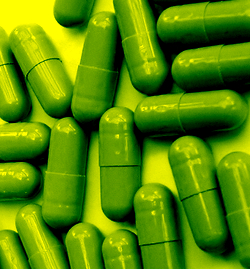Poo pilot outlined
 A pioneering “poo transplant” trial could give hope to severely ill cancer patients.
A pioneering “poo transplant” trial could give hope to severely ill cancer patients.
The immune-boosting power of a healthy gut microbiome is being harnessed in an Australian-first “poo transplant” trial aimed at saving the lives of severely ill blood cancer patients and meeting an urgent need for new treatments.
The ground-breaking clinical trial is being led by QIMR Berghofer clinician-scientist Dr Andrea Henden at the Royal Brisbane and Women’s Hospital (RBWH). It uses a new biological product made by Australian Red Cross Lifeblood from the Rotary WA Health Innovation Centre in Perth.
Faecal microbiota transplant (FMT) is emerging as an exciting potential treatment for a range of conditions. Trillions of gut microbes from the stool of a healthy donor are transferred into a patient to replenish their depleted gut microbiome and improve their immune response to fight disease.
This is the first time FMT will be trialled in Australia in blood cancer survivors who have developed severe Graft-versus-Host-Disease (GVHD), which is caused by their lifesaving bone marrow transplant when donor immune cells attack the recipient’s organs and tissues.
QIMR Berghofer Researcher and RBWH Haematology and Bone Marrow Transplantation Specialist Dr Andrea Henden said new treatments are urgently needed.
“A bone marrow transplant can be a double-edged sword. It saves the lives of people with aggressive blood cancers but can then take their lives by causing GVHD which is heartbreaking,” Dr Henden said.
“GVHD is particularly hard to treat in the gut with patients often hospitalised for long periods of time where they are dependent on hospital care and intensive immune suppressing medications. Conventional immune-suppressing steroid medication fails to work in half of all GVHD patients.
“FMT is a really exciting new approach that could save lives. If we can restore a healthy gut microbiome in these patients we can potentially influence immune function in the gut and treat the GVHD in a safer way that preserves the patient’s immunity,” Dr Henden said.
Lifeblood is at the forefront of FMT development in Australia becoming the first licensed FMT manufacturer just over 18 months ago, and now offering the product to hospitals Australia-wide.
Just like blood donors, microbiota donors are rigorously screened. Stool is collected from volunteers and then processed and tested at Lifeblood’s TGA-licensed facility before being supplied to researchers and clinicians.
The initial clinical trial has been funded by the RBWH Foundation and will involve ten patients over the next year before progressing to a larger trial.
The research also hopes to discover if a specific microbe or its derivative is responsible for improving GVHD during faecal transplant with a goal of eventually being able to offer patients a simpler targeted supplement or tablet that treats their disease.
It is also hoped that new information uncovered by the trial could lead to more effective treatments for conditions such as Crohn’s disease and ulcerative colitis which share similarities with GVHD.








 Print
Print